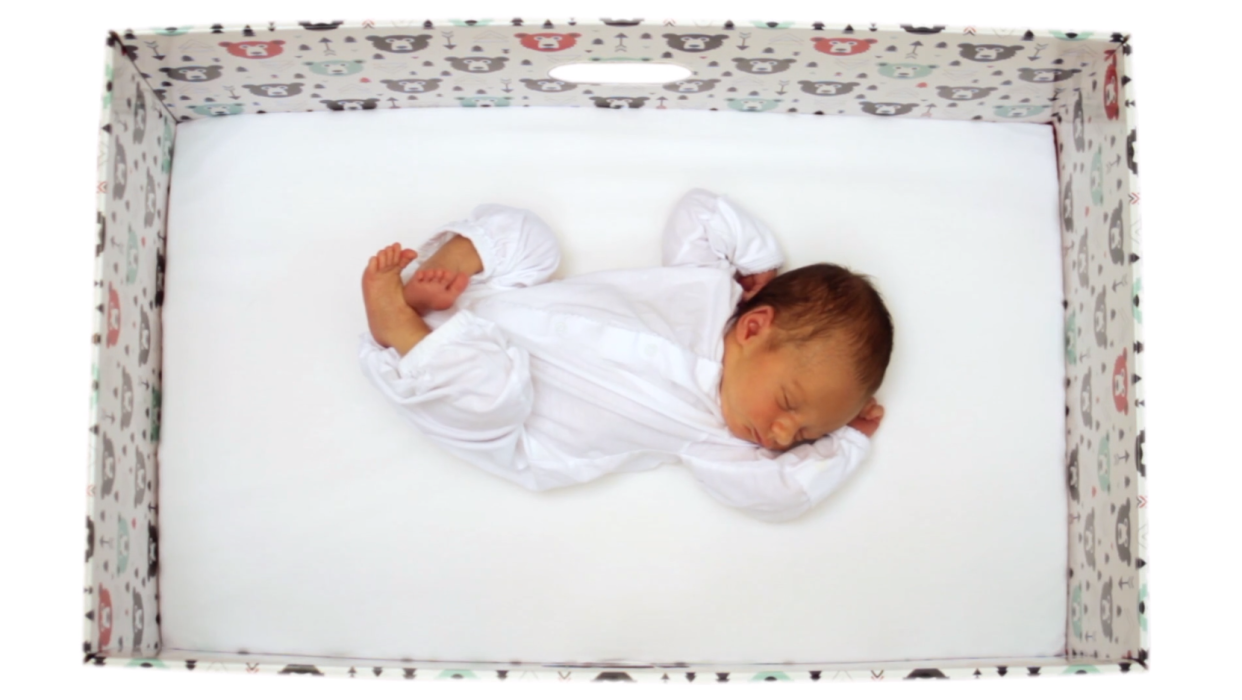US states introduce baby boxes to help combat infant mortality

Sudden infant death syndrome (SIDS) is one of the greatest fears faced by parents.
But one of the ways in which the risk of a mother or father finding their baby has tragically died in their sleep is through ‘baby boxes’.
The boxes contain essential items to help parents through the first few months of their baby’s life such as baby wipes, nappies and a onesie, but they also double up as cribs - sleeping in a box means it’s less likely a baby will roll on to their front, which increases the risk of SIDS.
Earlier this year it was announced that New Jersey was to be the first US state to roll out the baby boxes, and they plan to provide about 105,000 over the course of 2017.
This process has now begun.
One mother who’s benefitted from the scheme, which is in partnership with the Los Angeles-based Baby Box Co and the New Jersey’s Child Fatality and Near Fatality Review Board, is Jernica Quiñones.
Her son is four months old and has spent the majority of his life thus far sleeping in a cardboard box.
The 33-year-old mother-of-five points out that not everyone can afford a crib or bassinet: “Some mothers can't buy a Pack-n-Play or a crib,” she told NPR. Without the boxes, many parents have no other option than to have their babies share beds, which increases the risk of SIDS.
A post shared by Finnish Baby Box (@fibabybox) on Jul 21, 2016 at 11:26pm PDT
Finland has been handing out baby boxes to new parents for nearly 80 years, but the concept has now been adopted or at least trialled in Essex, Birmingham, Scotland, Argentina, Atlanta in Canada, South Africa and Zambia too.
In Finland, the baby boxes have been praised as a huge success and infant mortality rates have dropped since their introduction.
In the US, the new boxes have an extra focus on safe sleep - as well as receiving the packages, parents are encouraged to watch online videos about SIDS and complete a short quiz.
After New Jersey led the way, baby boxes have now been launched in Ohio and Alabama too.
One of the first mothers to benefit from the scheme in Ohio was Kyle Stimpert, a mother of twins in Cleveland, who revealed she’d have felt much less anxious if the baby boxes had already existed when her son and daughter were born in December.
“You don't have to research, you don't have to text a friend, you just know it's a safe place,” she says.
A post shared by The Baby Box Co. (@thebabyboxcompany) on Feb 13, 2017 at 10:27am PST
It’s as much about educating parents as much as the actual box for the babies to sleep in.
Of course, you can’t force anyone to really concentrate on or even watch a video, but Quiñones revealed she could still remember the key points one month later: for example, you should never put teddy bears in the crib and breastfeeding reduces the risk of SIDS.
Quiñones had already had four children, but she didn't know those facts before.
“The whole premise is that people like free things,” says Dr. Kathryn McCans, chair of New Jersey's Child Fatality and Near Fatality Review Board. “It's about getting the information out there.
“Through education and awareness, people can make better choices and hopefully we can see fewer children dying.”


